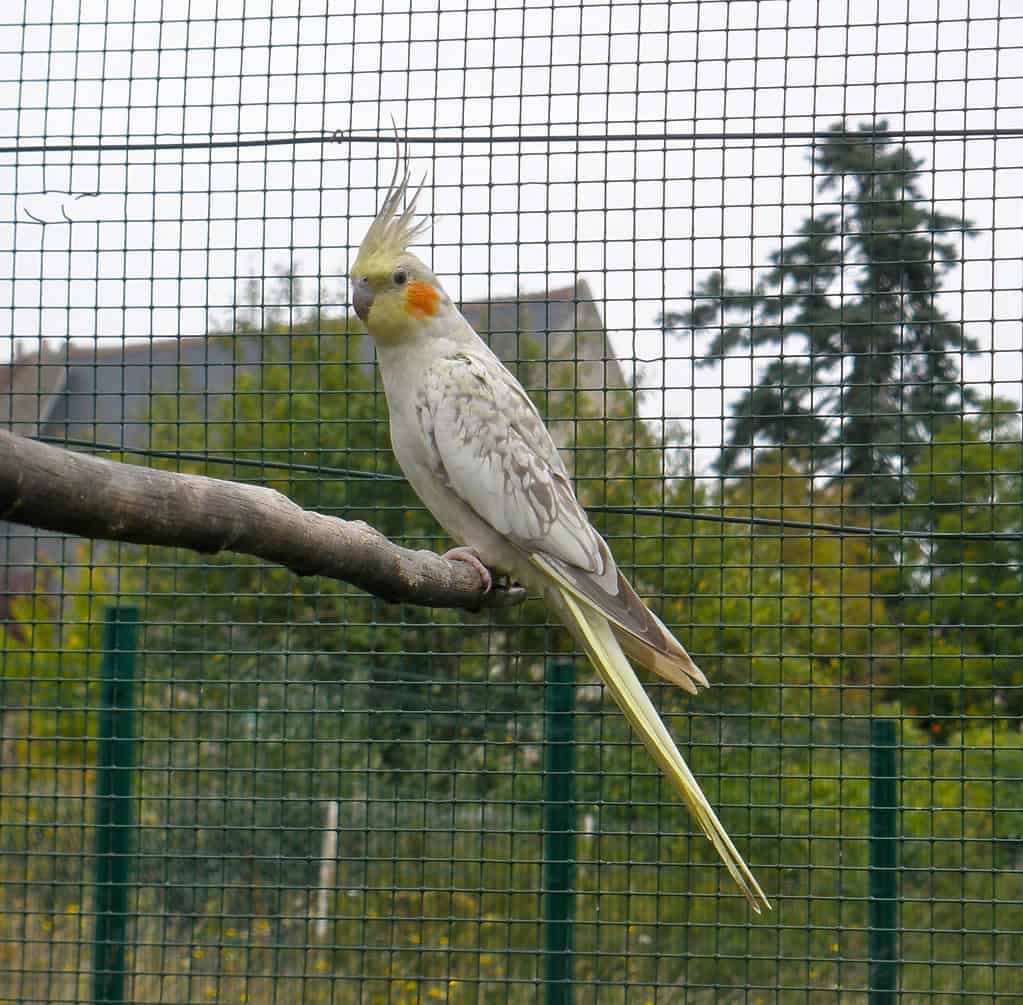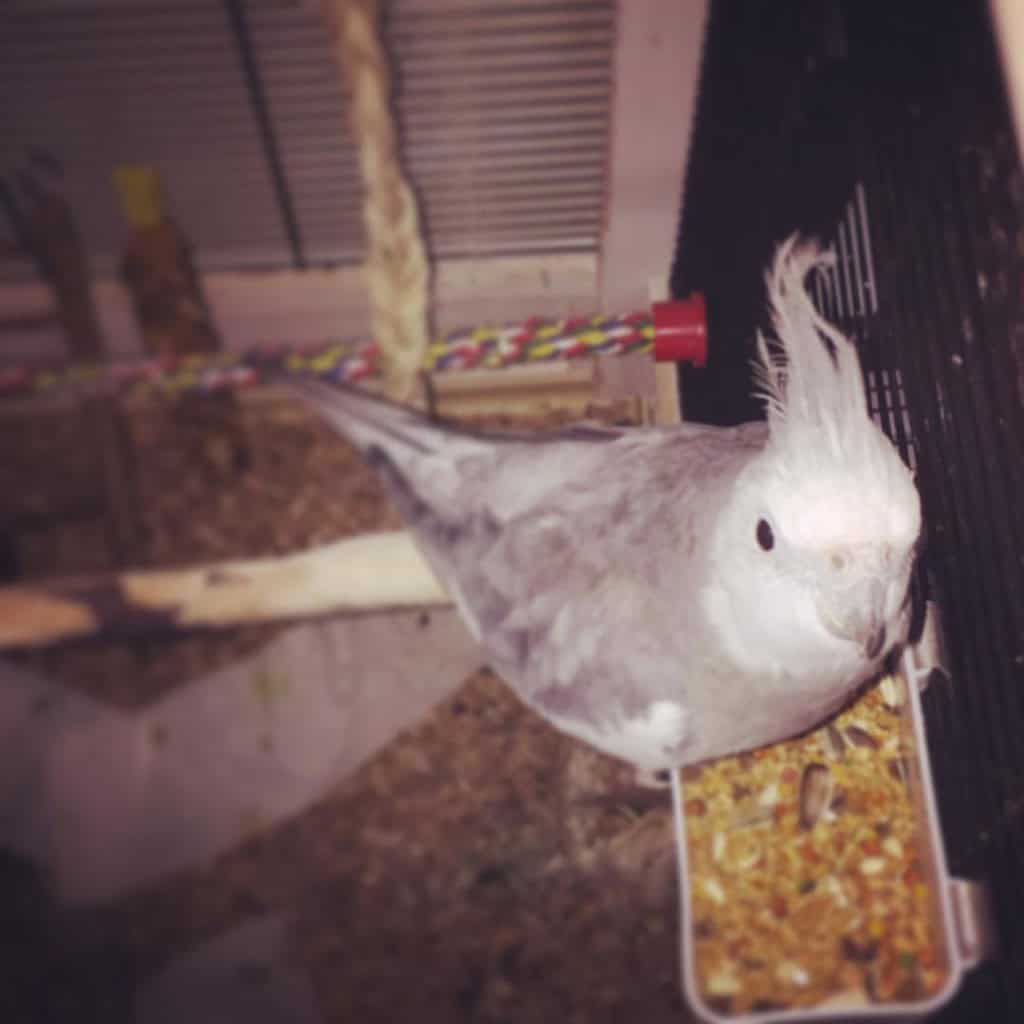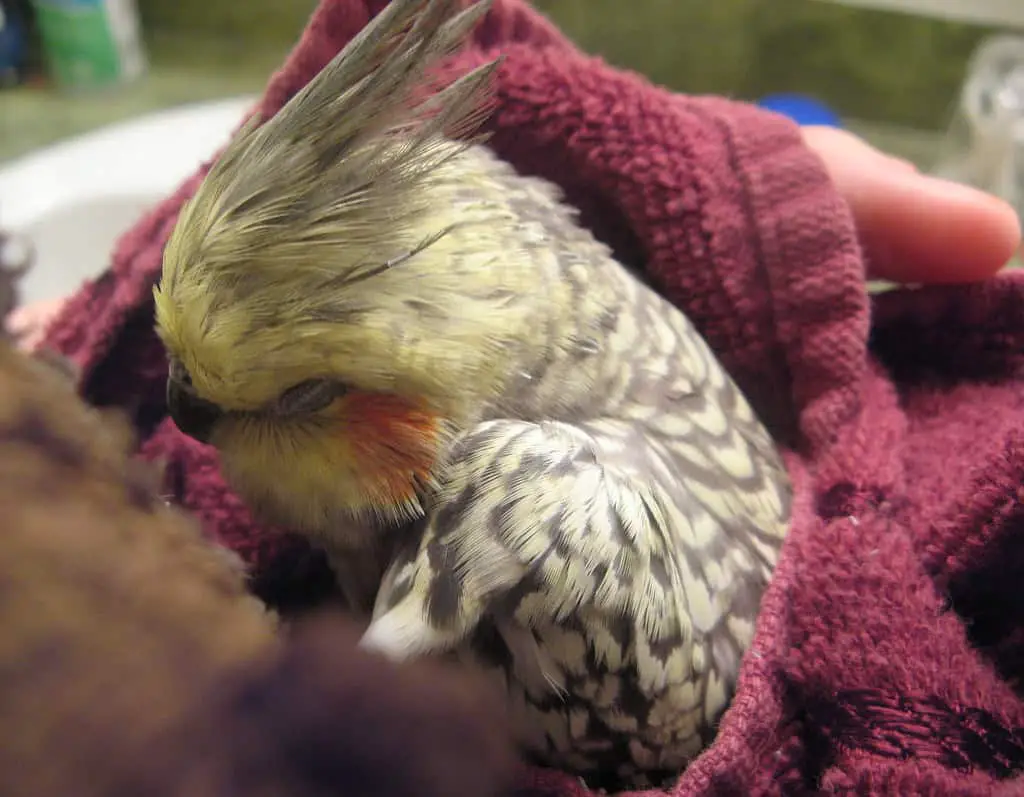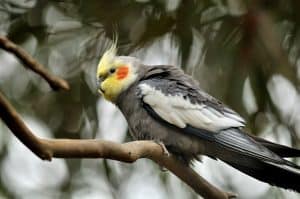Caring for a cockatiel isn’t just about providing a cage and some food; it involves a deep understanding of your feathered friend’s needs to ensure they live a long, happy life. Whether you’re a new owner or looking to brush up on your avian knowledge, mastering how to care for your cockatiel’s health is essential. From their complex dietary requirements to their need for mental stimulation and social interaction, these charming birds require dedicated attention.
You’ll discover that keeping your cockatiel healthy goes beyond the basics of food and water. It’s about creating a safe, enriching environment that mimics their natural habitat and behaviors as closely as possible. This not only helps in preventing common health issues but also boosts their overall well-being, making your time together more enjoyable and fulfilling. Let’s dive into the key aspects that every cockatiel owner needs to know to ensure their pet thrives.
Understanding Cockatiels

Understanding cockatiels involves recognizing their unique characteristics and addressing their specific health needs. Known for their sociable nature and expressive crest, cockatiels require attentive care to thrive in a home environment.
Cockatiel Characteristics and Behavior
Cockatiels, members of the cockatoo family, display a range of behaviors that are both charming and indicative of their well-being. Notably, their distinctive crest feathers signal their emotional state: a flat crest often signifies fear or aggression, whereas a lifted crest might indicate curiosity or excitement.
- Social Interaction: Cockatiels are inherently social birds. They thrive on interaction with their human companions and can develop strong bonds. Lack of social interaction can lead to stress and behavioral issues such as feather plucking.
- Need for Stimulation: These pet birds require mental and physical stimulation. Items such as play stands, enrichment toys, and occasional treats encourage exercise and mental health. An engaging environment prevents boredom and associated negative behaviors.
- Vocalizations and Body Language: Understanding their vocalizations and body language improves the bond between you and your cockatiel. Soft chirps are a sign of contentment, while hissing or biting may indicate discomfort or fear.
Common Health Issues in Cockatiels
Proper care of cockatiels is crucial to prevent common health issues. Regular check-ups with an avian veterinarian can help catch problems before they become serious.
- Respiratory Problems: Symptoms such as wheezing or tail bobbing while breathing could indicate respiratory distress. This could stem from environmental factors such as poor air quality or a dusty cage.
- Feather and Skin Issues: Poor nutrition, lack of proper care, and stress can lead to issues like feather plucking and skin inflammation. A balanced diet rich in essential nutrients and vitamins, complemented by fresh fruits and leafy greens, supports healthy feathers and skin.
- Digestive Health: Gastrointestinal issues can arise from an unsuitable diet or ingestion of foreign objects. Ensuring that your cockatiels’ diet is specially formulated for their species and regularly cleaning food and water dishes contribute to good digestive health.
Maintaining the right environment and offering proper nutrition while monitoring for distress signs ensures your cockatiel enjoys a long and healthy life.
Setting Up a Healthy Environment

Creating a healthy environment is pivotal in caring for your cockatiel’s health. A well-set environment ensures your feathered friend thrives, mirroring their natural habitat to support both their physical and mental well-being.
Choosing the Right Cage
When selecting a cage for your cockatiel, size and design matter. Your bird’s cage should be large enough to allow for wingspan extension and some flying. Typically, a cage measuring at least 20 inches by 20 inches by 30 inches is recommended. Ensure the cage features horizontal bars, as these encourage exercise by allowing your cockatiel to climb. The spacing between bars should be no more than 1/2 inch apart to prevent your pet from getting their head stuck or escaping. Place the cage in a location that avoids direct sunlight yet offers a view of the room to keep your cockatiel engaged and happy.
Essential Accessories and Toys
Accessorizing the cockatiel’s cage with essential items promotes a stimulating environment. At least two water dishes should be available—one for drinking and one for bathing. Food bowls need to be sturdy and positioned at perch height to allow natural feeding positions. Include multiple perches of varying textures and diameters to help keep your cockatiel’s feet healthy and encourage exercise.
Toys play a vital role, too; enrichment toys such as swings, ladders, and chewable items made of soft wood or other safe materials not only provide physical challenges but also prevent boredom and feather plucking. Additionally, a play stand outside the cage can offer a new area for your pet cockatiels to explore and interact with you, further enhancing their quality of life.
Nutrition and Diet
Proper nutrition is crucial for keeping your cockatiel healthy and thriving. Here, you’ll learn what to feed your feathered friend and what foods to avoid to maintain their best health.
What to Feed Your Cockatiel
A balanced diet is essential for your cockatiel’s vitality and longevity. Apart from specially formulated pelleted diets, which should make up about 60-70% of their intake, fresh vegetables and fruits play a critical role. Include leafy greens such as kale, and spinach, along with other vegetables like carrot, broccoli, and peas to provide vital minerals and vitamins. Occasionally, you can add fresh fruits like apples, bananas, and berries, ensuring they are thoroughly washed and seed-free.
Furthermore, always ensure water dishes are filled with clean, fresh water daily to keep your cockatiel hydrated. It’s equally crucial to provide a variety of foods to mimic the diverse diet they would find in the natural cockatiel habitat and to prevent dietary boredom.
Foods to Avoid
Certain foods that are typically safe for human consumption can be harmful to cockatiels. Avocado, chocolate, and caffeine-containing foods, like coffee and soft drinks, are toxic and should never be included in your cockatiel’s diet. Additionally, avoid giving your pet any foods high in fat and salt, such as chips or fried items, which could lead to health issues over time.
Other foods to steer clear of include garlic and onions, both of which can cause serious health problems in birds. Always consult with an avian veterinarian if you’re unsure about certain foods, as the right diet is a significant step in ensuring a long and healthy life for your cockatiel.
Essential Accessories and Toys
Accessorizing the cockatiel’s cage with essential items promotes a stimulating environment. At least two water dishes should be available—one for drinking and one for bathing. Food bowls need to be sturdy and positioned at perch height to allow natural feeding positions. Include multiple perches of varying textures and diameters to help keep your cockatiel’s feet healthy and encourage exercise.
Toys play a vital role, too; enrichment toys such as swings, ladders, and chewable items made of soft wood or other safe materials not only provide physical challenges but also prevent boredom and feather plucking. Additionally, a play stand outside the cage can offer a new area for your pet cockatiels to explore and interact with you, further enhancing their quality of life.
Nutrition and Diet

Proper nutrition is crucial for keeping your cockatiel healthy and thriving. Here, you’ll learn what to feed your feathered friend and what foods to avoid to maintain their best health.
What to Feed Your Cockatiel
A balanced diet is essential for your cockatiel’s vitality and longevity. Apart from specially formulated pelleted diets, which should make up about 60-70% of their intake, fresh vegetables and fruits play a critical role. Include leafy greens such as kale, and spinach, along with other vegetables like carrot, broccoli, and peas to provide vital minerals and vitamins. Occasionally, you can add fresh fruits like apples, bananas, and berries, ensuring they are thoroughly washed and seed-free.
Furthermore, always ensure water dishes are filled with clean, fresh water daily to keep your cockatiel hydrated. It’s equally crucial to provide a variety of foods to mimic the diverse diet they would find in the natural cockatiel habitat and to prevent dietary boredom.
Foods to Avoid
Certain foods that are typically safe for human consumption can be harmful to cockatiels. Avocado, chocolate, and caffeine-containing foods, like coffee and soft drinks, are toxic and should never be included in your cockatiel’s diet. Additionally, avoid giving your pet any foods high in fat and salt, such as chips or fried items, which could lead to health issues over time.
Other foods to steer clear of include garlic and onions, both of which can cause serious health problems in birds. Always consult with an avian veterinarian if you’re unsure about certain foods, as the right diet is a significant step in ensuring a long and healthy life for your cockatiel.
Daily Care and Maintenance
Maintaining daily care routines is essential to ensure your cockatiel enjoys a healthy life. This section elaborates on practical ways to keep your feathered friend in the best possible condition day after day.
Cleaning and Hygiene
Creating a clean environment for your pet cockatiel drastically impacts its health and happiness. You should clean their cage at least once a week, but removing waste and uneaten food daily is advisable to prevent mold and bacteria growth. Scrub the cage with a clean spray bottle filled with a mild dish soap solution, rinse thoroughly to remove any soap residue, and dry before replacing fresh food and water dishes. Additionally, washing the cage accessories, such as perches and toys, ensures that no harmful pathogens threaten your bird’s well-being. Regularly replace items like sandpaper perches that can harbor bacteria over time.
Regular Health Checks
Cockatiels benefit from regular health assessments by an avian veterinarian, ensuring they lead long and healthy lives. Schedule check-ups twice a year; these examinations help track your cockatiel’s health and catch potential issues early. Your veterinarian can also advise on dietary needs and wing clipping, which keeps your bird safe within its environment. Monitoring your cockatiel for signs of distress or illness, such as changes in eating habits, feather plucking, or unusual vocalizations, is crucial. If these occur, immediate veterinary attention may prevent more serious health problems, ensuring your cockatiel stays happy and vibrant.
Handling and Interaction
Handling and interacting with your cockatiel correctly is crucial for building trust and strengthening your bond. Below, you’ll find strategies to help develop a positive relationship with your pet cockatiel, ensuring they lead a happy and healthy life.
Tips for Bonding with Your Cockatiel
Bonding with your cockatiel requires patience and consistent gentle interaction. Start by spending time near their cage every day, talking softly to help them get accustomed to your presence. Gradually, you can introduce your hand into the cage with some treats, encouraging your bird to come closer without forcing them, fostering trust. Always move slowly to avoid startling them, and keep your sessions short; about 5-10 minutes several times a day is optimal.
Once your cockatiel appears comfortable around you, you can encourage them to perch on your finger inside the cage. Use a command like “step up” while gently pressing against their lower chest to encourage this behavior. As trust builds, you can begin hand-feeding them which further strengthens your bond. Feeding “treats” like small pieces of fresh fruits or specially formulated pellets can turn this into a positive experience for them.
Training and Socialization
Training your cockatiel not only enhances your bond but also provides essential mental stimulation. Clicker training, where you use a small device to make a click sound as a marker for desired behavior, is highly effective. Start with simple commands like ‘come’ or ‘perch.’ Reward your cockatiel immediately with a treat and verbal praise after the click to reinforce these behaviors.
Socialization is equally important. Introduce your cockatiel to different people slowly to help them become more comfortable around others. Avoid loud noises and sudden movements during these introductions to keep the experiences positive. If possible, letting your cockatiel interact with other birds can be beneficial, but always supervise these interactions to ensure safety.
A well-socialized cockatiel is usually happier and displays fewer signs of stress or aggression. Regular, gentle socialization helps ensure your cockatiel enjoys a long and happy life. Remember, the key is consistent, positive interaction and patience.
Recognizing and Addressing Health Problems
Maintaining the health of your cockatiel involves recognizing the early signs of illness and knowing when it’s time to consult an avian veterinarian. Addressing health issues promptly can ensure a long and healthy life for your pet cockatiel.
Signs of Illness
You need to observe your cockatiel daily for any signs of illness. Common indicators include a change in behavior, such as decreased vocalization or less interest in interaction. Physical signs might include ruffled feathers, changes in eating or drinking habits, and abnormal droppings. Respiratory issues may be evident through wheezing or nasal discharge.
Watch for plumage problems like feather plucking or bald patches, which can signify stress or nutritional deficiencies. If your cockatiel’s activity level decreases or you notice any lethargy, it’s likely time to take action. These symptoms can escalate quickly in birds, reflecting serious health issues if not addressed at once.
When to Consult a Veterinarian
Consult an avian veterinarian if you notice any of the symptoms mentioned above, as birds tend to hide their illnesses until they are quite advanced. Additionally, if your cockatiel exhibits signs of distress, such as panting with an open beak, tail bobbing, or difficulty perching, these are immediate red flags requiring professional attention.
Regular check-ups are advisable to monitor your cockatiel’s health, even when they appear healthy, as preventative care plays a crucial role in managing a pet bird’s overall well-being. A veterinarian specialized in avian care can offer guidance on proper care and diet, helping to avert potential illnesses and ensure your feathered friend enjoys a vibrant, healthy life.
Wrapping Up: How to Care for Your Cockatiel’s Health
Caring for your cockatiel involves a deep commitment to both their physical and emotional needs. By creating a stimulating environment and maintaining a nutritious birds diet you set the stage for a healthy life. Remember the importance of regular interaction and training to keep your pet bird mentally sharp and socially engaged. Always stay vigilant for any signs of illness and don’t hesitate to seek professional advice from an avian vet to tackle health issues early. With these practices in place your cockatiel can enjoy a vibrant and fulfilling life by your side.





Lirigzon Gashi